He went from earning $1.67 per hour to ghostwriting 80+ books of leaders and CEOs, and generating over $1 million per year several years running
There's a little-known joke in the world of writing that goes something like this: "If their face is on the cover, they most likely didn't write it."
Stroll the best-selling business or current events aisle at any bookstore, and what you're really seeing is the work of a small handful of hard-working, highly skilled "ghost writers" who capture a person's history, voice, and vision, then turn that into a blockbuster hit.
Hampton member Joshua Lisec is one of these.
He's written almost a hundred books for politicians, coaches, artists, inventors, and billion-dollar founders alike. In fact, if you're the kind of person who reads this blog, chances are you already sampled his work without realizing it.
Well, today he's pulling back the curtain to show you inside the business – the early days, how he grew, "oh sh*t" moments where he almost lost it all, and more.
My personal favorite was the Youtube video that only got 2k views in 6 years, but brought him over $2 million in business. It's a great reminder of both the power of sharing your expertise as a founder, and the importance of tracking more than vanity metrics of clicks and views.
Hello! Who are you and what business did you start?
I'm the only Certified Ghostwriter + Certified Hypnotist in the world (California State University Long Beach and the National Guild of Hypnotists, respectively).
Lisec Ghostwriting is a 7-figure ghostwriting business in Columbus, Ohio—one of the only such successful businesses in the industry that is not a ghostwriting agency; I "do the work" for clients.
I've done "celebrity" memoirs and have written mainstream bestsellers and award-winners, but our preferred aspiring author now is the expert who is not yet a recognized authority; they're in the pursuit of excellence, but they're they best-kept secret. That's my type.
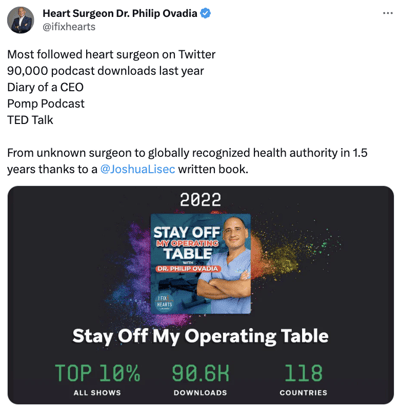 We also "ghostpublish" (trademark pending) clients' books if they have no interested in pursuit a traditional book deal.
We also "ghostpublish" (trademark pending) clients' books if they have no interested in pursuit a traditional book deal.
In May, we launched a done-with-you alternative to my premier ghostwriting services called Author•ity Accelerator (this version of my services is scalable, unlike 1-on-1 work). We exceeded expectations by 250%.
Lisec Ghostwriting published my magnum opus nonfiction work on June 15th 2023, 12 years to the day I got paid to ghostwrite for the first time. So Good They Call You a Fake was an instant #1 international Amazon bestseller and has eclipsed 3,000 copies sold.
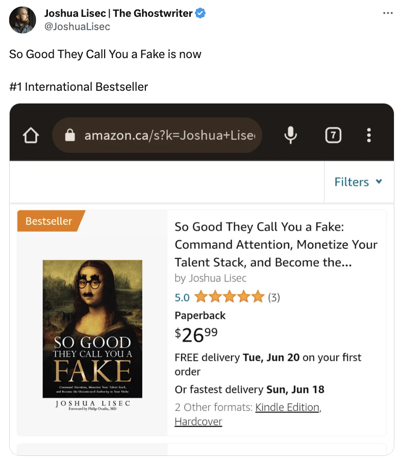
In January, I co-founded an AI marketing SaaS called WordOut. It's both a content repurposer and social media scheduler that uses prompts I've spent the first half of 2023 months writing and fine-tuning. The first product-market/niche fit we're observing is with authors and agencies that market for authors. Authors simply upload their book chapters and within seconds have months of social media content.
What to me is most remarkable about my journey as a ghostwriter is that my very first freelance writing gig paid $1.67/hour, but Lisec Ghostwriting has become a 7-figure business 3 years in a row now. That and I’ve ghostwritten more than 80 books for CEOs, entrepreneurs, and celebrities; that’s fun, too.
My TEDx Talk tells the story of the early years:
What's your backstory and how did you come up with the idea?
My dream as a child was to write novels for a living. I got a two-book independent publishing deal at age 20. I was homeschooled, so noteworthy professional success before you can legally drink is all but required. The two novels were pitched as “Indiana Jones for millennials” (It worked.)
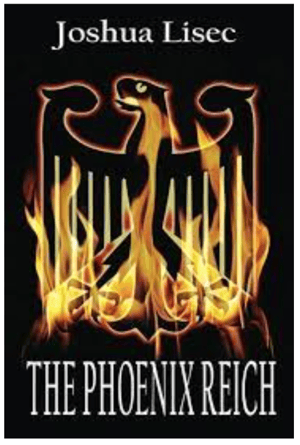
Then, upon publication of both books, something funny happened. I did the online promotion, the limited-time giveaways, the author panels, the selfies with fans on flip phones (so they came out off-center and blurry)—the whole shebang you'd expect of a first-time author who wants to “make it.” Amid those book promotion efforts, everything changed.
Two readers—both of whom knew me from my low-key freelance writing side gig at the time—asked me the exact same question. (No, they didn’t know each other.)
“Joshua, I enjoyed your novels so much, I’d like you to write my book for me; can you help?”
Both askers were over sixty. Both also confided in me that they’d wanted to write their book longer than I’d been alive. My novels read so well, they said, that they wanted me to write their memoirs “like a novel.” Characters, dialogue, three-act stories, plot twists, and all.
Not knowing that ghostwriting was even a thing, I said to both aspiring authors, “OK, sure. I’ll help you with your book."
And I’ve been saying “OK, sure” ever since.
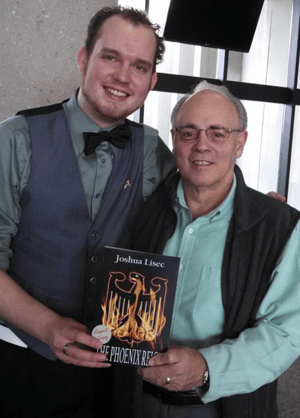
Take us through the process of building and launching the first version of your product.
It took me 2.5 years to write my first novel; it took me 2.5 months to finish my last book.
As I said, ghostwriting memoirs took me on a detour from my intended life path of fiction series author. But I continuously pivoted in the direction of what professional services that I could sell that my early author clients wanted.
Upon finishing the first draft of a nonfiction book for a prolific inventor-turned-author, I was asked, “OK, Joshua, now what?” The “now what” is the question numerous aspiring authors reach. Now what do they do about publishing?
That one question, I’ve answered with my own new innovation: Ghostpublishing (trademark pending). It’s the union of what works in both self-publishing and traditional publishing, minus the cons of both.
The way we pitch Ghostpublishing as part of the Lisec Ghostwriting process is this:
Ghostpublishing gives you a business. The other guys gives you a Word document.
Because unless that book is published and published right, it’s not a real book. Traditional publishing requires submitting to cosmopolitan gatekeepers, waiting two to five years, and relinquishing creative control to subcontractors who likely have zero background in your industry.
For the serious professional, traditional publishing is unacceptable. Still, the independent alternative—self-publishing—seems no better. If any ole Joel can upload a file to Amazon and sell it for $0.99, any ole Joel will.
At present, Amazon lists 32.8 million books for sale, a hefty share of which are self-published tripe that sells fewer than one copy.
An industry-disrupting, civilization-altering book deserves better than the online equivalent of the slush pile. And that’s why we give every manuscript we work on the best it deserves; we turn good ideas into tangible literary assets.
Today, launching such books through Ghostpublishing, where authors’ books are published under their own imprint, not some made-up fantasy name, is a turnkey experience for both Lisec Ghostwriting and the authors we service.
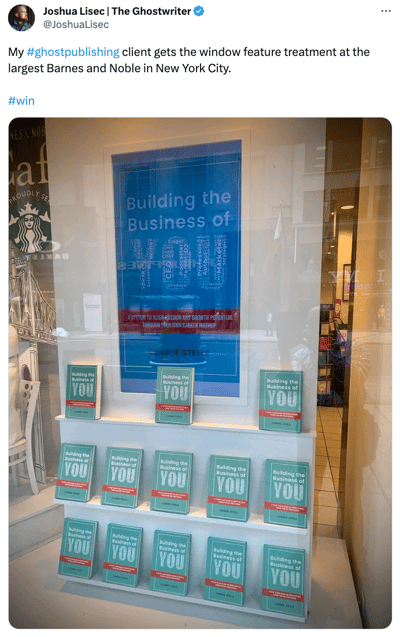 One of the latest high-profile Ghostpublishing clients is the Dilbert creator and New York Times bestselling author Scott Adams.
One of the latest high-profile Ghostpublishing clients is the Dilbert creator and New York Times bestselling author Scott Adams.
Since launch, what growth channels have been most effective for you?
From 2011 through 2016, growth was painful. Then I took to YouTube, and we went from Joshua as a 5-figure earner to multiple six-figures-plus every year since.
On YouTube, I targeted “bottom of the funnel” (BoFu) keywords related to book writing, ghostwriting, book publishing, and more. I wrote tight video scripts and offered a call-to-action at the end of each video I recorded in a spare bedroom: “Book a consultation with me if you’re ready.” Those first 100 videos, low professional quality as they may be, were the #1 revenue generator for 4 years, from 2017 through 2021.
This video has only 2,100 reviews since 2017, but it has generated in excess of $2 million.
That’s when I began taking Twitter seriously, posting up to 20 times per day. Make the algorithm like you, and the algorithm will make others like you, too. About 80% of my posts are marketing/promotional posts for whatever I happen to be focused on selling at a given time, be it my book So Good They Call You a Fake or the Author•ity Accelerator done-with-you program for authors.
Did you ever have an “oh shit” moment where you thought it wouldn’t work?
It was February 2020.
We all remember what went down and why. What happened to me happened to millions of small business owners around the world. Clients, gone. Businesses, shuttered for months by the government. Some took advantage of this—the perfect excuse to stiff their vendors for services already rendered.
My wife and I had just closed on our future dream home. It was a real fixer-upper, but we ran the numbers; our current book of business would cover the multiple six figures’ worth of repairs, renovations, and moving expenses, making our little domestic paradise a reality.
We’d already hired the contractors and work was well underway when the lockdowns struck. Week after week I got email after email . . . I’m so sorry, Joshua, but we have to pause working with you because the state literally won’t let us open our doors.
OK. Well. At least we could count on incoming payments from clients for services already rendered.
So we thought.
One client with the largest outstanding invoice (which would have paid our mortgage for almost a year) sent me an “update,” the gist of which was: Due to global instability amid the novel coronavirus epidemic, we are suspending all pay to all contractors effective immediately.
That, of course, is illegal.
She, of course, didn’t care.
But I was not about to pull the same integrity-free stunt on all the people hired to work on our new home. So I had to come up with an income solution that worked, and fast—or we were so screwed.
For a few months, I scraped by with clients who begged for steep discounts on my writing services. But the most common inquiry during the spring and summer months was for advice, not “write this for me, please.” By advice, I mean, how to do it themselves. One such company, a consulting startup, worried I was too expensive to hire outright. They’d had a problem with hired ghostwriters in the past—they were terrible. The founders had spent more time rewriting drafts than it would have taken to just write the damn things themselves.
These guys asked me if I could record a video course for their team of contractors, maybe give them some sort of checklist to improve their writing and cut down time needed to edit.
And I answered by creating my first persuasive writing course, The Best Way to Say It, subtitled, Write Anything Effectively in 500 Words or Less (later changed that for obvious reasons).
So I sent the consulting guys the course link, and they bought it for $99. Then, a few days later, they hired me outright for $6,000 a month (!) because even though they believed the course could train their team, it was just faster to work with the person who could do it all for them.
An undeniable demonstration of proficiency will do that.
As the Bible says, “What has been will be again,” and the course-customer-to-full-service-writing-client pipeline has stayed open since those consulting guys. Within the last calendar year as of this writing, two different six-figure ghostwriting clients told me, “I bought The Best Way to Say It to watch how you work to make sure you’re not full of s—.”
Yes, they both cussed. Be so good they swear at you!
The true story of The Best Way to Say It is more than the upsells it generates; I expanded and deepened the original subject matter of the course into “sequels,” spinoffs, and masterclasses, from self-editing workshop Write This, Not That to the aforementioned hypnowriting program The Best Way to Copywrite It. The original Best Way was a perennial bestseller on online course platform Gumroad, and more than 2,800 people have purchased a Best Way product to date. Most of them have wanted to be students, not clients, and about half of them bought two or more courses from my e-library.
Can you break down the keys to this business model for us? What makes it work? And What do outsiders typically not understand about your industry?
What makes Lisec Ghostwriting work is that we are not an agency. We do not pass off books from the founder to an unknown freelancer. That’s a great way to scale a business (or to scale a business right out of business, wink-wink). But the best don’t hire unknowns; the best way to hire the best. So our promise is a 99th percentile book for leaders who are used to that in all areas of their lives and businesses.
This means ghostwriting has, for me, an excellent margin, as the prime cost of goods sold is . . . me, Joshua Lisec the Ghostwriter! However, the fixed costs associated with Ghostpublishing are such that we do not offer it as a standalone service to most authors who already have a completed book. We prefer to work exclusively with authors who need a book and need it published. No Ghostpublishing without Ghostwriting, otherwise it’s not worth my time. And the reason is simple—we don’t publish the gutter. We have had authors come to us with “finished” books and a budget for publishing, and I said not no but hell no and never speak to me again your book is that bad.
OK, that’s a wee extreme, but you get the idea. If you have to argue with me that your book is “good, actually,” it’s not. You know it. I know it. Everybody knows it. Or they will, if you publish it yourself. Which we will not help you do.
As for the business of ghostwriting, many assume it’s interviews, transcripts, followed by a culling of uh’s and um’s. That’s no book. That may be how “scribes” do it, but that the end result is not a masterpiece that will drive results for your business. We turn persuasive books into unstoppable business-builders. So we do interview authors, but I, Joshua the Ghostwriter, shape clients’ ideas from good to better to The Best Way to Say It™.
You might imagine that a business with results so good needs little advertising, and you’re right. Roughly 50% of new business comes from past client referrals. And what’s notable about the referrals is how public they are. It’s rare and even unheard of for authors to “out” that they had a ghostwriter, even rarer to name their ghost and tell the world to hire them, too. And yet is exactly what Lisec Ghostwriting does—our results are so good you have to tell everyone you hired us!
The downside of such a remarkable high-touch services business is the lack of scalability to a point. That’s why we are transitioning from 90% of revenue deriving from services, to closer to a 50/50 balance between products and services, with the premier product being a monthly premium newsletter with live Q&A with me.
Each month’s topic is an advanced persuasion technique that is both ungoogleable and unChatGPTable. We already have 82 subscribers but plan to 10X that by Summer 2024.
What platform/tools are absolutely crucial for your business?
Our favorite project management tool is ClickUp. Our go-to for Team Lisec communication is Slack. For bookkeeping we use QuickBooks Online. All information products are hosted on Gumroad. And our email service provider is ConvertKit. But a little-known essential market research tool for our Lisec Ghostwriting clients is Publisher Rocket.
What have been the most influential books, podcasts, or other resources?
The two books that changed my life for the better forever were Getting Everything You Can out of All You’ve Got by Jay Abraham and The $100 Startup by Chris Guillebeau. The former taught me to think like a marketer in every aspect of my services business, and the latter taught me to keep expenses low as long as possible and thus profits high to make this thing “worth it” to keep at through the ups and the downs.
Where do you see untapped opportunity in the market? What business do you wish someone else would build that would make your job easier?
At least 75% of our authors have a podcast. That multiplies their reach and ultimately their success. If you have a book, you also need a podcast. And if you hired a ghostwriter for your book, you might consider hiring a “ghostproducer” for your podcast as well.
What are some strong opinions you have about leadership, and how do you actually put those into practice in your company?
I’ve ghostwritten for more vacuous executives and entrepreneurs than most business people have ever had the displeasure of meeting. That’s why I am pickier about who I let hire me now. It’s also why I focus on zones of competence and incompetence. What I know I know, I “call the shots” with gusto and frequency. But where I recognize I do not know something or suspect I may not know what I don’t know, I vocalize that early and often to my team.
Daily back-and-forth updates with key staff, weekly calls with the project manager, and quarterly CFO-led meetings all facilitate that.
Where can we go to learn more?
Personally, I find being the CEO of a startup to be downright exhilarating. But, as I'm sure you well know, it can also be a bit lonely and stressful at times, too.
Because, let's be honest, if you're the kind of person with the guts to actually launch and run a startup, then you can bet everyone will always be asking you a thousand questions, expecting you to have all the right answers -- all the time.
And that's okay! Navigating this kind of pressure is the job.
But what about all the difficult questions that you have as you reach each new level of growth and success? For tax questions, you have an accountant. For legal, your attorney. And for tech. your dev team.
This is where Hampton comes in.
Hampton's a private and highly vetted network for high-growth founders and CEOs.
See if you're a fit...
.png)





 One of the latest high-profile Ghostpublishing clients is the Dilbert creator and New York Times bestselling author Scott Adams.
One of the latest high-profile Ghostpublishing clients is the Dilbert creator and New York Times bestselling author Scott Adams.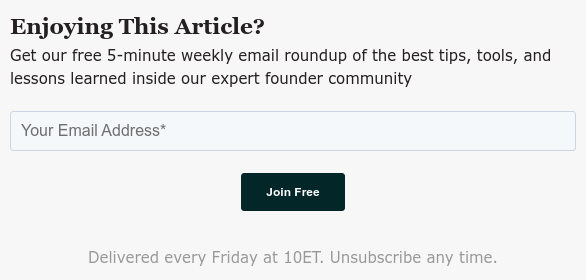


.png?width=352&name=Blog_Featured_Image_(39).png)

